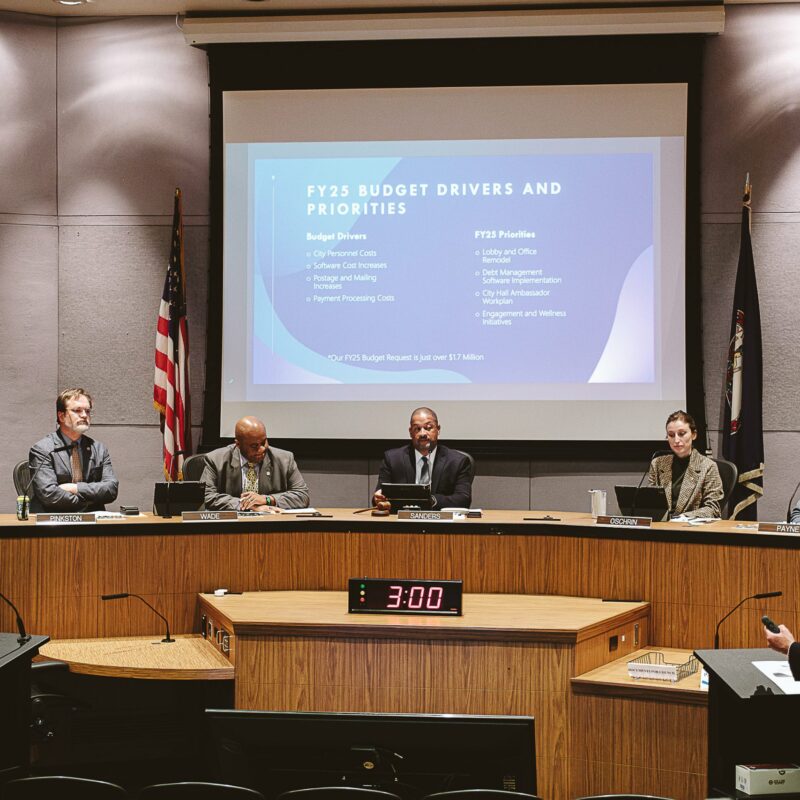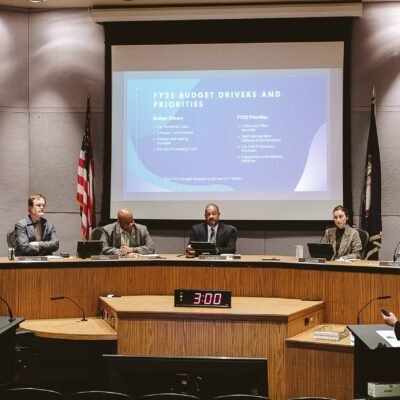In a December 8 letter, Albemarle County supervisors refused an offer from the Department of Environmental Quality to mediate city-county disputes over the 2006 community water supply plan, citing no room for compromise. Last week, Charlottesville Mayor Dave Norris underscored the statement following an updated—and increased—cost estimate for a renovated Lower Ragged Mountain Dam.
|
|
Dialogue between the two localities stretched thin after City Council approved a noticeably amended (some would say new) water supply plan on September 20. Council’s amendments include the phased construction of the Lower Ragged Mountain Dam—largely opposed by Albemarle County officials and a major point of contention—and maintenance dredging of the South Fork reservoir. (For the complete year in city-county water debates, see page 12.)
After a panel of dam experts raised questions about cost estimates for the city’s dam proposal, engineering firm Black & Veatch responded with a new estimate range of $13.5 million to $19.5 million. In a statement, Norris called the latest findings and revised cost estimates by Black & Veatch a “major breakthrough.” According to Norris, the construction of a new, earthen dam, favored by the county, is “impractical.” The expansion of the current one, however, “remains not only a viable approach, but also quite a cost-effective one.”
While city and county governments remain divided, however, five local organizations—representing business, environmental and civic interests across district lines —recently assembled in support of the 2006 plan, calling it an “elegant solution” to the community water supply needs.
In a press conference held during the first snowstorm of the season, the Charlottesville Regional Chamber of Commerce, League of Women Voters of Charlottesville-Albemarle, the Nature Conservancy, the Piedmont Environmental Council (PEC) and the Free Enterprise Forum “reaffirmed” their support for the already permitted and approved plan. Although many of the same organizations had previously announced their individual positions, they had not united until the schism between Charlottesville and Albemarle most recently expanded.
“There has been a pretty active effort to refute what we think is basically empirically sound evidence, [and] that the plan as approved and permitted is the way to go forward,” said Timothy Hulbert, president of the Chamber of Commerce.
According to PEC representative Jeff Werner, the community praised the public process that led to approval of the 2006 plan. However, while Werner said the plan is widely supported and accepted by the community, he added that misinformation reported in the media has rendered such support silent.
“PEC has been involved in this for some time. We endorsed and supported the plan that was presented and, to date, no information that I have seen has offered a compelling reason for us to reconsider that position,” he said.






